A good English dictionary is the first thing you’ll need to prepare for your exam. Your vocabulary becomes extremely important in Speaking and Writing sections of IELTS (or CAE). Reading section can turn into a real struggle too if you find too many words to have unfamiliar or unclear meaning. Let’s try and find a dictionary that suits your needs best!
Note that the covers may look different depending on the current edition of the dictionary
Oxford Advanced Learner’s Dictionary
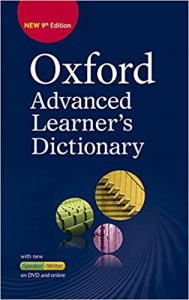
This is the first choice for a beginner. This dictionary explains word meanings in clear and simple English. Even though the title says ‘Advanced’, it is a very beginner-friendly dictionary that can be comfortably used by upper-intermediate and even intermediate level learners.
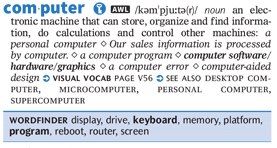
WORDFINDER section introduce relevant words that the reader may find interesting.
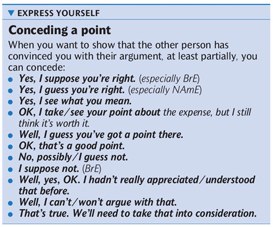
EXPRESS YOURSELF section provides the learner with ways to phrase the same idea in a different way.
Cambridge Advanced Learner’s Dictionary
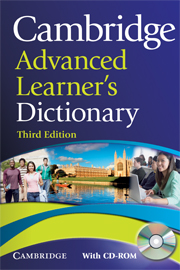
This dictionary will make a good choice for a more confident and experienced learner of English. It has more descriptive examples of word usage and generally there are more examples for each word.
FOCUS ON WRITING section provides the reader with entries on good academic writing techniques and habits.
Vocabulary profile is a nice touch that lets the learner know which words meanings they should know at their particular level — B2 (Upper-Intermediate), C1 (Advanced) and so on.
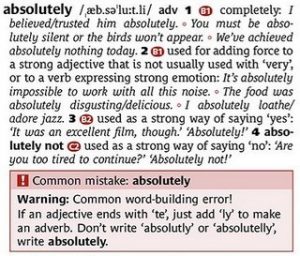 Another useful feature of this dictionary is that it addresses typical mistakes, both spelling and grammar. The authors target mistakes made specifically by non-native learners of English. You may want to see these lists of common mistakes in writing and speaking while you’re at it.
Another useful feature of this dictionary is that it addresses typical mistakes, both spelling and grammar. The authors target mistakes made specifically by non-native learners of English. You may want to see these lists of common mistakes in writing and speaking while you’re at it.
The official Cambridge University Press page states that this dictionary is perfect for IELTS, CAE and FCE preparation.
These two dictionaries should get your started in the right direction. With time, you will want to pick up a more specific dictionary more suited for your needs, but by then you will well know what exactly it is you are after.
Having a paper dictionary is great, but it is believed that they will eventually become ousted by their online counterparts. Using an online dictionary is quick, simply and always available. Any definition you may require is literally at your fingertips — with the help of your smartphone of choice.
Longman Dictionary of Contemporary English (LDOCE)
Longman Dictionary of Contemporary English
This is my personal favourite. Each definition is complete with the frequency of use, British and American English pronunciation audio sample, transcription and examples of use in sentences. If the word belongs to a selected topic set, it is also mentioned.
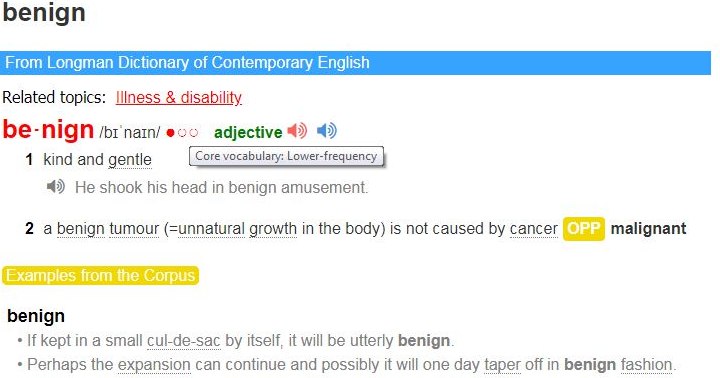
As seen from the example above, the sentences used to illustrate the use of word are made of fairly advanced vocabulary. This could dissuade less experienced learners from using it and opting for the next online dictionary.
Dictionary.com
This is the minimalist’s choice — all you get is a simple definition, example of pronunciation, simplified transcription (no special phonetic symbols) and a couple of short phrases or sentences to illustrate usage of the word.
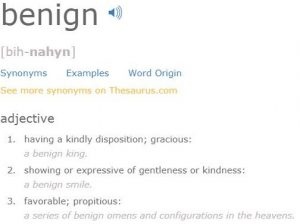
The beauty of dictionary.com is that it doesn’t barrage its user with tons of data. It is a concise tool the sheer simplicity of which is easy to appreciate.







